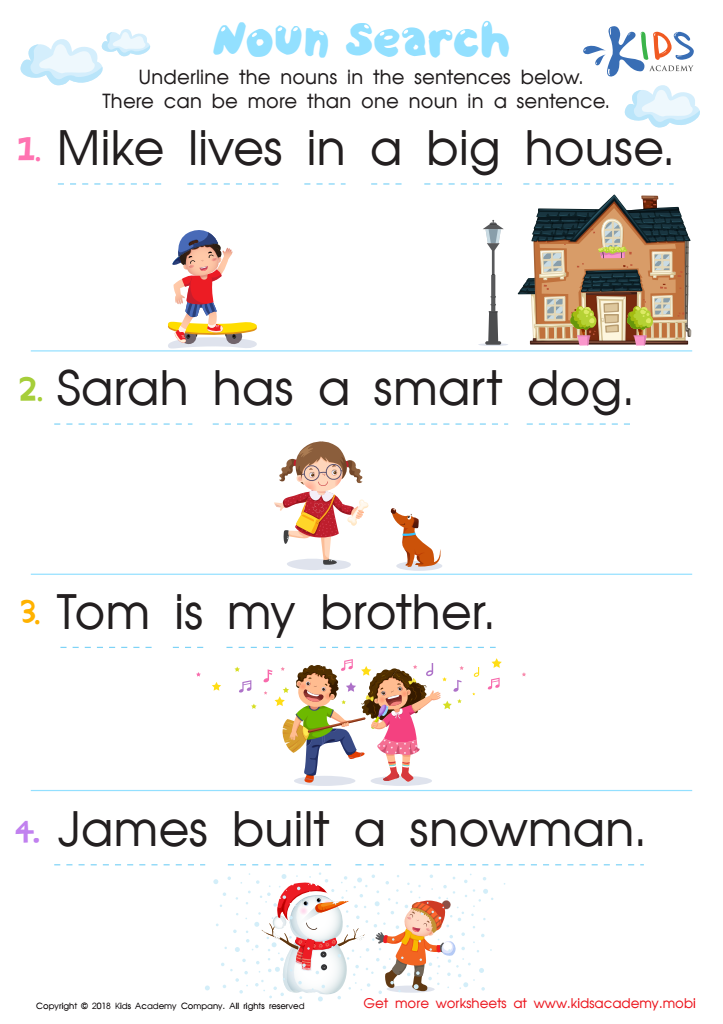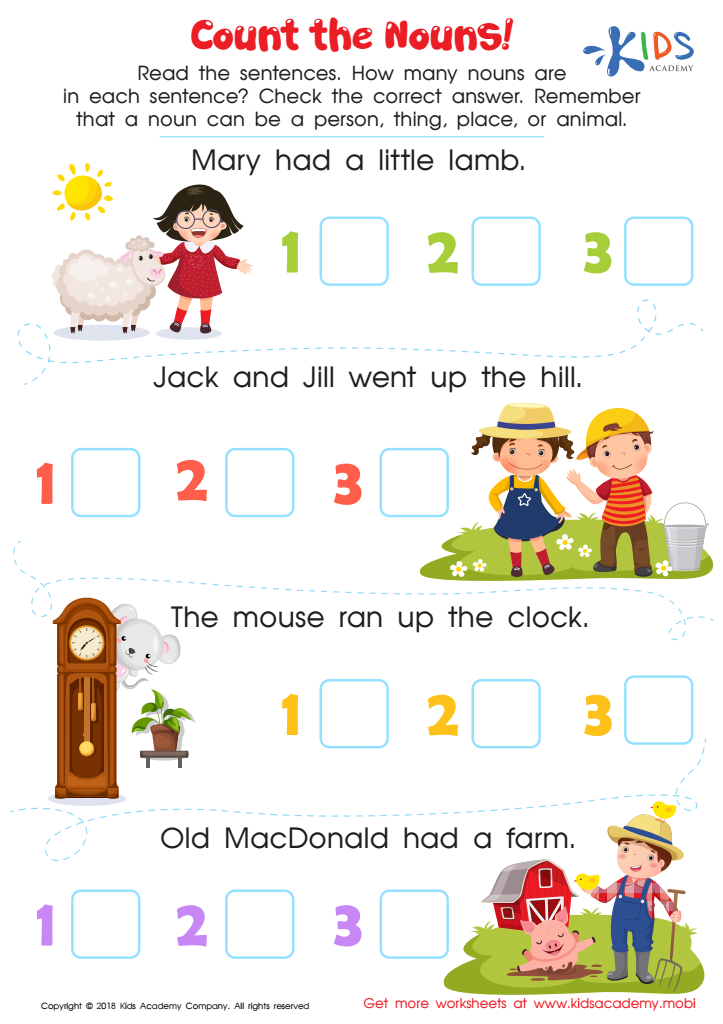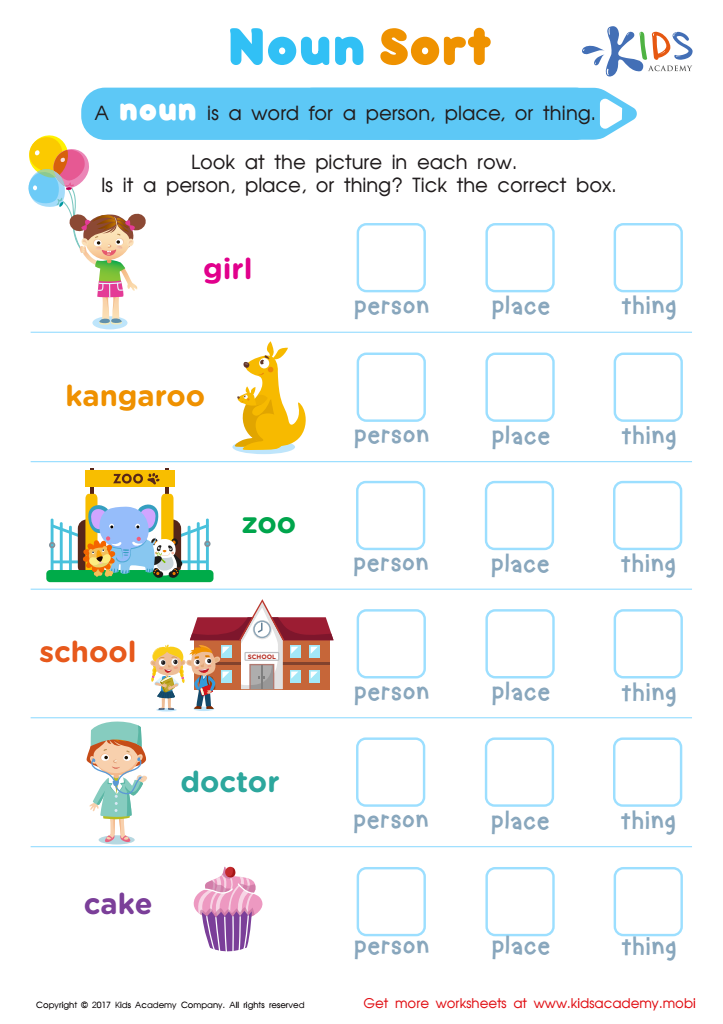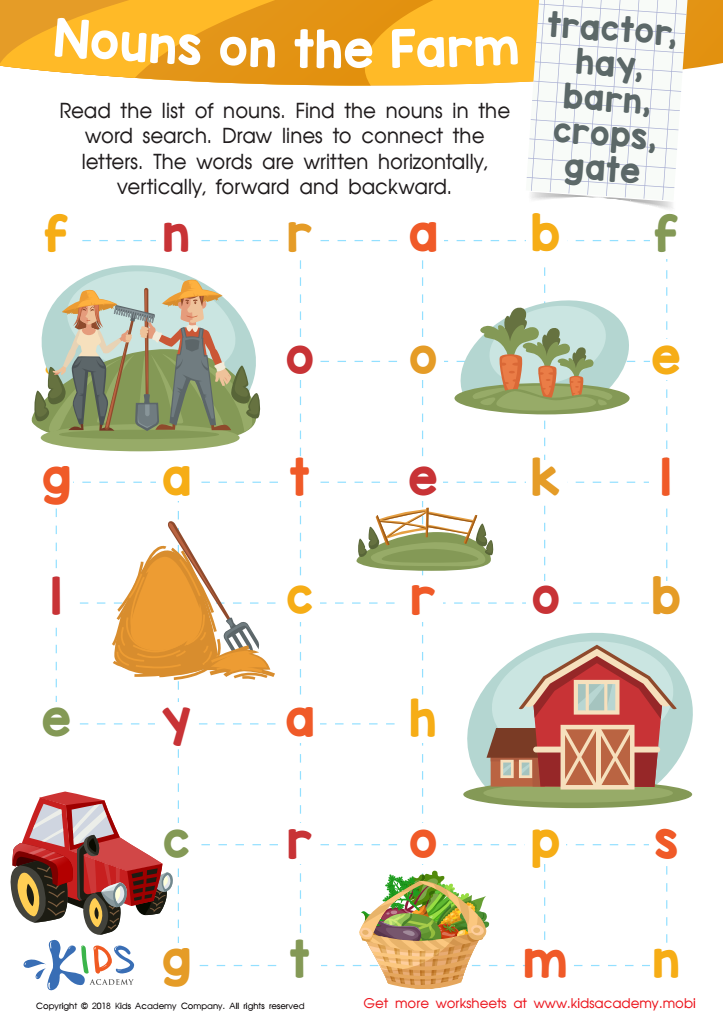Noun identification Extra Challenge Worksheets for Ages 4-7
4 filtered results
-
From - To
Boost your child's language skills with our Noun Identification Extra Challenge Worksheets for Ages 4-7! These engaging and interactive worksheets are designed to enhance children's understanding of nouns through fun activities that capture their attention and curiosity. Perfect for toddlers and early learners, our extra challenge worksheets provide a unique opportunity to reinforce noun recognition and usage. With colorful illustrations and a variety of exercises, students will enjoy exploring common and proper nouns while developing their literacy skills. Great for homeschooling or classroom settings, these worksheets make learning about nouns exciting and effective! Download your set today and watch them thrive!


Noun Search Worksheet


Count the Nouns Worksheet


Noun Sort Printable


Nouns on the Farm Worksheet
Noun identification is a crucial skill for children aged 4-7 as it serves as a foundation for their early literacy development. Parents and teachers should care about this “Extra Challenge” because it significantly impacts a child’s ability to communicate effectively. Identifying nouns, which represent people, places, things, and ideas, helps children comprehend the structure of language and enhances their vocabulary. This skill sets the groundwork for reading and writing, enabling them to express their thoughts more clearly.
Additionally, engaging with the “Extra Challenge” encourages critical thinking and cognitive development. As children learn to recognize and categorize nouns, they practice essential skills such as observation, classification, and analysis. This exercise fosters curiosity about the world around them, promoting a lifelong love for learning.
Moreover, mastering noun identification aids in social interactions, allowing children to articulate their needs and interests with peers and adults, thereby boosting their confidence and social skills. Overall, investing time in noun identification during these formative years is not just about academic readiness; it's about equipping children with essential tools for effective communication, emotional expression, and imaginative thinking, which are vital for their overall development in future academic endeavors.

 Assign to My Students
Assign to My Students



















